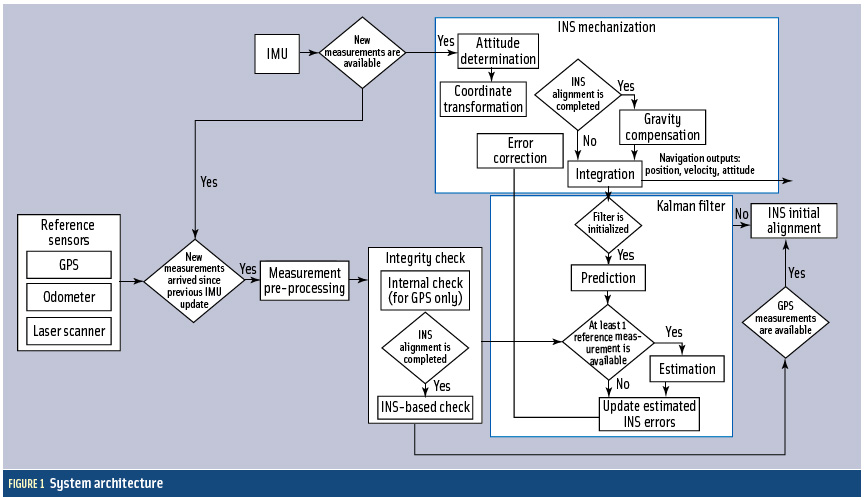In 2018, when the UK’s post-Brexit involvement in Galileo was still a point of contention between London and Brussels, UK ministers set aside £92m to study the feasibility of building a sovereign satellite-navigation system. Almost immediately, the UK Space-Based Positioning Navigation and Timing Program (SBPP) became something of a political football, or soccer ball if you prefer. Critics and supporters chimed in vehemently at any piece of news. Why an independent UK PNT system might be necessary remains a reasonable first question for some observers.
The Royal Institute of Navigation has long advocated a balanced and cooperative approach to global PNT, and specifically for not becoming overly reliant on GNSS. The Institute’s Director, John Pottle, told Inside GNSS, “For most applications, the open services are all that is needed, and there are already plenty of ranging sources available from the existing GNSSs.”
Of course, GPS, Galileo, GLONASS and BeiDou open signals remain freely accessible to all UK-based users, as does EGNOS, the EU’s regional augmentation system.
“My understanding,” Pottle continued, “ is that the UK’s current use of encrypted GPS for military purposes is not impacted by Brexit. So in many ways there is not a ‘problem to solve’ in the immediate future in relation to provision of services. The question of whether the UK needs control over its own space-based positioning, navigation or timing assets is very much a strategic and political one that I am happy to leave to the politicians to decide!”
The UK Space Agency (UKSA) has its mandate, political or not, and is working to fulfill it. We spoke to UKSA Deputy CEO Ian Annett, who laid out the whys and wherefores. “In line with other nations with significant GDP,” he said, “we recognize the dependence that we place on space-based PNT. The loss of PNT alone could have up to a billion pounds a day impact on the economy, so we recognize its value in economic terms, but also of course the support that it provides to critical national infrastructure [CNI], whether it’s energy, whether it’s maritime, whether it’s aviation, and therefore it’s really a case of how much risk one wishes to take in relying on open signals from other nations.”
Annett said that there is no reason to believe the US would ever deny the UK access to the GPS signal. However, he said, “If third party actors would try and jam GPS or remove that signal by whichever means, then having our own assured access to a PNT signal will mean that we could protect that critical national infrastructure, protect our society and protect our economy within the UK.”
One is reminded of the initial debate surrounding the nascent Galileo program, when proponents argued that Europe needed an autonomous PNT capability, so as never again to be wholly dependent on the American GPS system, which, after all, could be switched off at a moment’s notice by the Pentagon. The UK would seem now to be seeking its own measure of independence and autonomy. The Pentagon has yet to switch off GPS, but the EU has its Galileo nonetheless, and no one blames her. Who then can blame the UK? So the argument might go.
System of Systems
When it comes to technologies, Annett said, it’s not a binary choice. It’s not a space-based PNT system or a terrestrial system or an RF system. “A first step for us is to understand the complex operating environment within which this system would have to exist. We’ve got to determine a balance across all of those different technologies that will help preserve that infrastructure, help preserve the economy.”
Ninety-five percent of all goods delivered to the UK come by sea. “The maritime sector is entirely dependent on the space-based PNT,” Annett said, “because you can’t pick up a terrestrial signal in the middle of the Pacific. Clearly there are other systems and technologies that are starting to emerge, whether it be quantum based, that will help things like inertial navigation, but are not quite there yet. So we need to understand where space can protect our economy now.”
Here the Agency’s approach would seem to align with that of the Royal Institute of Navigation, which is always a good thing. John Pottle said, “I see the way forward as adopting more of a systems engineering approach to PNT design, layering system elements and technologies to deliver the required performance and resilience. Good examples used widely today are GPS plus inertial; or GNSS plus Wi-Fi positioning plus cellular positioning. There is a lot of innovation in non-space-based positioning, navigation and timing systems at present, which show great promise. While space-based PNT will continue to be a very important element, I believe that in future we will see much more in the way of combining complimentary technology elements intelligently.”
Earlier this year, the UK government partnered with Indian firm Bharti Global to acquire out of bankruptcy the company OneWeb, with its low-Earth orbit (LEO) broadband megaconstellation. UK Business Secretary Alok Sharma has been cited in the media as saying, “Through our Space-Based Positioning Navigation and Timing Program, we will draw on the strengths of the UK’s already thriving space industry to understand our requirements for a robust and secure satellite navigation system. This includes considering low-orbiting satellites that could deliver considerable benefits to people and businesses right across the UK, while potentially reducing our dependency on foreign satellite systems.”
As soon as the government associated OneWeb with its plan for a satnav system, observers pointed out that using OneWeb satellites for PNT purposes would be anything but straightforward. For example, see “OneWeb LEO PNT: Progress or Risky Gamble?” in the Sept/Oct issue of this magazine.
John Pottle said, “There are very few, if any, examples where a satellite system designed and optimized for one purpose is perfect for another. In addition, very precise orbit and clock requirements make positioning and timing a challenge for any satellite system.”
Alec James, UKSA Comms and Stakeholder Engagement, Space Based PNT Programme, told us, “We’ve always been clear that a PNT service wasn’t the rationale for the investment in OneWeb, which represents a cutting-edge telecommunications capability. That said, it is possible that the system or its future iterations could provide some additional benefits as part of a ‘system of systems’ approach to PNT delivery. In particular it could present additional resilience due to its very different broadcast frequency to that of GPS and Galileo.”
Widening the Scope
Back in 2018, when the UK first announced its interest in a sovereign satellite-navigation system, many observers understood this to mean a very Galileo-like, medium earth orbit (MEO) GNSS, and subsequent arguments and objections seemed to take that kind of purely space-based system as a baseline. More recently, in a September 2020 statement, the British government’s Department for Business, Energy and Industrial Strategy (BEIS), to which UKSA is attached, made explicit a broader approach. The statement said the Agency will look at “new and alternative ways” of providing PNT services. The SBPP would “consider newer, more innovative ideas of delivering global ‘sat nav’ and secure satellite services to meet public, government and industry needs.” Some observers suggested this new focus meant the UK was throwing in the towel, ready to give up on developing its own a Galileo-like system.
“Have we run out of ideas and are now asking everybody else?” said Annett. “I think the approach that we’re taking is really refreshing. It defines a new way of working with industry. It’s not about government strapping down a bunch of requirements and then pushing it out to industry and say go away and come back with potential contracts to meet those requirements. This is about engaging with industry.
“The opposite end of the spectrum to that is of course people would accuse us of being arrogant if we thought that we had the answers and all the solutions. There are some very good ideas out there, which can extend from provision of a service-based solution, which we would regulate, all the way into government-owned and government-built. I don’t vouch to have all of the answers within the program, so we have gone out to industry and said, hey how would you guys address these problems.”
Annett said the Agency will start with a broad list of options, then narrow down and move to the cost-benefits analyses. “Amongst all of those technologies, it’s finding the sweet spot to provide sufficient duality, diversity and redundancy in order to support CNI,” he said.
Inside GNSS contacted a number of UK space industry players who largely declined to comment on the current state of UK GNSS affairs, citing, among other things, “commercial sensitivities” around the topic. There can be little doubt that they will all be watching developments with keen interest and seeking to participate in the still-to-be-defined program.
As far as a timetable is concerned, Annett said, “It’s really difficult to answer that question, because that would infer that we know what we’re going to deliver. What I can say is that over the next few months our intention is to analyze what’s out there and then present options. That’s not going to happen overnight. When we’ve got those options, we’ll need to examine them, to say, right, what gives us the best bang for our buck? And part of that is a timeliness element. There’s a risk associated with that. What’s the threat and how long can we carry that risk.”
Still with Benefits
Like every other country in the world, the UK will continue to enjoy free access to the open Galileo signal. In addition, the European Commission is committed to delivering in the near future a free high-accuracy service (HAS), and the Galileo commercial authentication service (CAS), though its final configuration is yet to be determined, will also be available to UK users.
One European Commission officer within the Galileo program, who prefers not to be named, told us, “I don’t see a reason why the services within my scope—OSNMA/HAS/CAS—will be different for the UK, as a user, than for any other user. Apart from the SIS, which is accessible worldwide, both OSNMA, HAS and possibly CAS will have a ground channel support, which should be part of the service. At the moment, but this is my personal opinion, there is no reason why any of these would not be available for the UK too. In terms of general benefits, one benefit of Galileo is not only being a user of its services but also participating in its development. I think in this part the UK may lose its benefits.”
The Crown Jewel
No longer an EU member, the UK will not automatically be allowed access to the secured Galileo Public Regulated Service (PRS), the encrypted signal, robust to jamming, intended for military, security and strategic infrastructure—unless it requests such access, and then pending negotiations.
Under the applicable legal framework, third countries can use the PRS provided a defined set of agreements is concluded. Such agreements could cover the manufacturing, under specific conditions, of PRS receivers, with the exclusion of security modules. And in case anyone is interested, and the UK might well be, the EU is currently negotiating such agreements with the US and Norway. The US requested an opening of talks some years ago, and a number of rounds have taken place.
“We will continue to draw the open signal, as anybody will,” said Annett, “but our ability to influence the PRS will no longer be there, so we wouldn’t anticipate being able to use that for defense or for critical national infrastructure, hence the reason for making sure that we can look at our own capabilities for space-based PNT.
“The PRS piece is absolutely critical, both from a security and a CNI perspective, and that’s the crown jewel of Galileo. So you have to come up with some form of assured signal in order to make sure that you can protect that critical national infrastructure, and also the security elements within defense.”
The European Commission communicated that the EU has offered to cooperate with the UK on Galileo through a PRS access agreement. So far, however, the UK has not submitted a request to open PRS negotiations. As noted, the UK already has the use of the encrypted US GPS signal for military use.
For now the UK independent PNT program will likely continue to exist in “shadow” form, much like a shadow cabinet—a possible alternative without actual power. Whether the UKSA’s options and analyses produce an actionable outcome remains very much to be seen.





![GNSS Powers 'Green Asphalt' Road Recycling On-site testing and validation of GreenAsph 4.0; Image courtesy Exact Control System[50]](https://insidegnss.com/wp-content/uploads/2025/11/On-site-testing-and-validation-of-GreenAsph-4.0-Image-courtesy-Exact-Control-System50-150x150.jpg)
